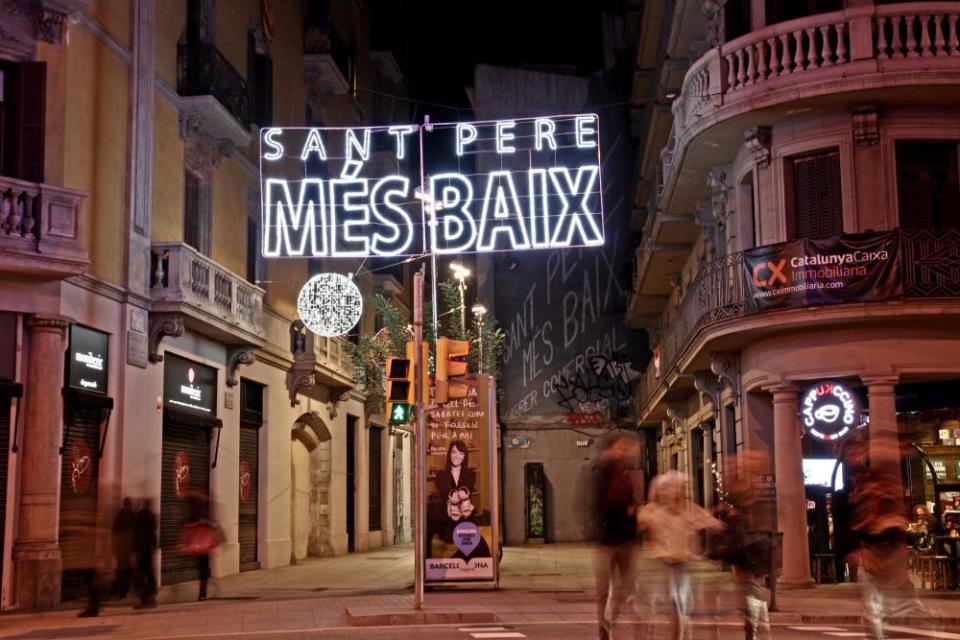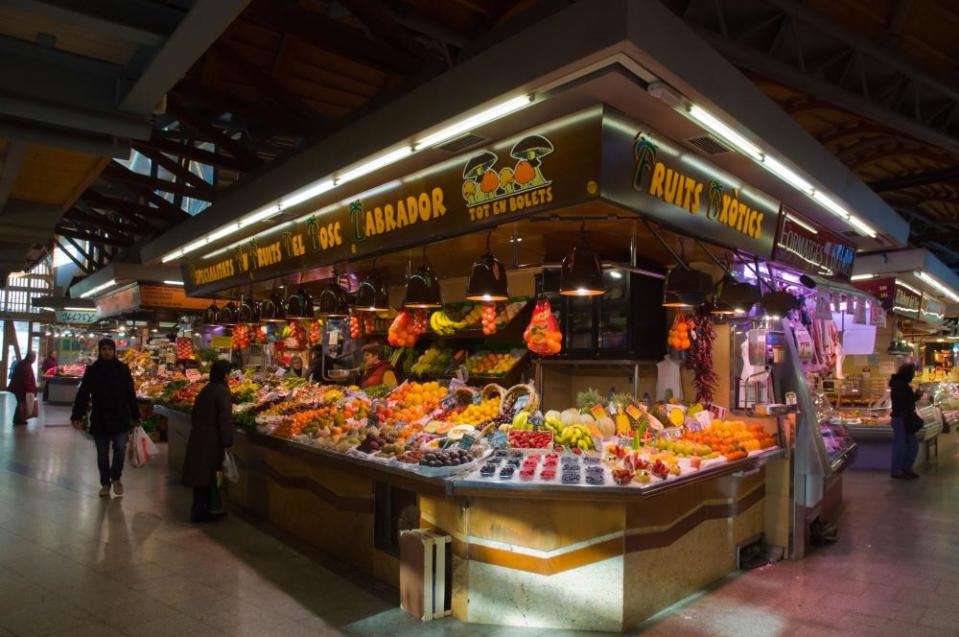Soaring rents and noisy parties: how Airbnb is forcing out Barcelona locals
Until recently, the Sant Pere neighbourhood of Barcelona had resisted the tide of mass tourism. Ten years ago, many visitors who ventured there found it forbidding, and even a little sinister, and soon retreated to the more familiar and gentrified Gothic Quarter.
Then the city gave Sant Pere Més Baix, the main shopping street, a makeover and, although it was supposed to be for the benefit of residents, as one local put it, “it was like rolling out the red carpet for tourists”.
First came the hotels, then Airbnb. The barrio of Sant Pere, Santa Caterina and La Ribera, which makes up the northern part of the old city, is home to 22,000 people. A study shows that the zone has undergone a sharp increase in Airbnb apartments in recent years. At present there are more than 1,000 Airbnb listings in the area.

Locals say Airbnb has been a major factor in driving up rents in the barrio by as much as 50% over the past few years, forcing residents to move to more affordable parts of the city.
Jessie Delgadillo, 23, was born in the neighbourhood and lives with his mother and sister and her baby in Sant Pere Més Baix. The flat is small and he’d like to move out to live with his girlfriend but, even though he is a relatively well-paid data analyst, he can’t afford to rent anywhere in the area.
To make matters worse he is regularly kept awake at night by parties in a nearby Airbnb apartment, he says.
“It’s driving me crazy. And not just me. I think every neighbour in the building has called the police at least once,” he said.
“We decided this year to find a new apartment to live together, but I don’t think we’ll be staying here. It makes me sad because I’ve been here all my life. But with prices so high we’ll probably move to a town near Barcelona. Somewhere close by, but with the peace and quiet we used to have before all this.”
A combination of soaring rents and stagnant salaries mean that around four-fifths of Spaniards aged between 16 and 30 continue to live with their parents.
Daniel Pardo, another local resident, dismisses suggestions that Airbnb benefits the local community. “It doesn’t bring anything of value. It’s a classic middle man who puts two parties in touch in return for a large slice of the cake.”
Pardo says the worst effect is that local people are forced out, adding that he has far fewer friends in the neighbourhood than he did 10 years ago.

The influx of tourist apartments has also radically altered local commerce. For centuries Sant Pere was the city’s wholesale garment district but over the past few years the trade has moved out to the suburbs to be replaced by vegan cafes, souvenir shops, cycle hire outlets and Chinese nail bars.
“In the past 10 years my street has acquired two hotels, six nail bars, four restaurants that local people can’t afford to eat in, two pizza takeaways, a shop selling cannabis products, a juice bar and a shop that sells suitcases,” says Joanna, Jessie’s mother. “On the other hand, we’ve lost a greengrocer, a menswear shop, a bakery, an underwear shop, a charcuterie and a video rental cooperative.”

The 175-year-old Santa Caterina market is at the heart of the barrio and has become a local tourist attraction. So do Airbnb guests buy food there so they can cook back at the apartment?
“Not at all,” says Sergi Casaponsa, a butcher with a stall in the market. “I don’t know of anyone who benefits from them. They don’t buy food to cook at home, they just get takeaway pizzas.”
default
For several years the city authorities have tried to contain the spread of holiday apartments but it’s a lucrative business.
Pardo says it is hard for people to resist the temptation to let out their apartment, at least some of the year.
“What Airbnb is saying to people is look, life is tough, work is precarious, but you live somewhere that’s worth a lot of money. It’s worth more to you to rent it out than to live in it. This eliminates the essential social function of housing. Ultimately what this sort of tourism does is destroy the possibility of being a community.”

 Yahoo News
Yahoo News 